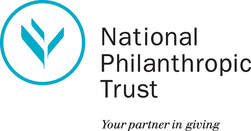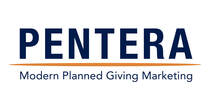Conference Schedule
MONDAY, APRIL 24, • 8:00 AM - 5:30 • Westin St. Francis, San Francisco
Schedule is subject to change. To be eligible for CFREs or MCLEs, attendees must attend the entire education session.
MONDAY, APRIL 24, • 8:00 AM - 5:30 • Westin St. Francis, San Francisco
Schedule is subject to change. To be eligible for CFREs or MCLEs, attendees must attend the entire education session.
|
MORNING PLENARY
9:35 am - 10:30 am Changes in the Philanthropic Landscape By: Rehana Abbas, Chief Philanthropy Officer, San Francisco Foundation Kendra Onishi, Vice President of Development, Philanthropic Partnerships, Silicon Valley Community Foundation Megan Barber Allende, President/CEO, Community Foundation of Mendocino County |
LUNCHEON & KEYNOTE SPEAKER
12:00 pm - 1:30 pm Healthy Communities, Thriving Planet By: Dr. Scott Sampson, Executive Director, California Academy of Sciences |
SESSION 1: 10:45 am - 12:00 pm
|
FUNDAMENTALS
Taxes and Charitable Giving – What Do Gift Planners Need to Know? By: Karl Mill, Founder, Mill Law Center The presentation will aim to reset how gift planners think about tax law, going beyond just the charitable deduction and tax forms, to break down how donors and their advisors are thinking about gifts. By understanding how the tax law drives giving, and what it motivates, gift planners can better understand what drives donations and what sorts of strategies are appealing when. Concepts covered will include (A) the value of a deduction vs. the value of shifted gain, (B) how the gift, estate, and income tax regimes intersect, (C) how taxes drive philanthropic vehicle selection, and (D) assignment of income doctrine. |
CULTIVATION & MARKETING
Partnering with Professional Advisors to Multiply Your Planned Giving Success By: Kimberly Jetton, CFRE, MNM, Founder and President, Pleiades Nonprofit Advisors, LLC & Andy Ragone, CGPP, Integrated Marketing, Crescendo Interactive Partnerships with professional advisors are vital to the success of any planned giving program. This session explains “why” success hinges upon having such partnerships as well as “how” best to navigate your future working relationships with key allied professionals. |
TECHNICAL
Analyzing Contributions of Illiquid Assets By: Jeffrey Davine, Partner, Mitchell, Silberberg & Knupp LLP Planned giving personnel often receive offers of illiquid assets from donors. Before accepting these gifts, it is necessary to fully analyze the tax and non-tax consequences to the charity and to the donor. I frequently receive inquiries from nonprofit clients on how to evaluate a proposed contribution of an asset that is illiquid. These assets include real property and interests in closely held corporations, limited liability companies, and partnerships. Before accepting this type of gift, it is important for gift planning professionals to have a list of procedures to complete to ensure that the gift will be one that will benefit the charity and will not result in any unexpected “surprises” to the charity or to the donor. |
SPECIAL TOPICS
DEI-IDEA: How to Operationalize your DEI Aspirations By: Abigail Oduol, Senior Development Officer, Earthjustice Your organization has made DEIA (diversity, equity, inclusion, accessibility) declarations, now what? For organizations past the “what is DEIA” phase and wanting to engage further on the departmental, team and individual levels in a practical, operationalizable way, this session is for you! We’ll talk through case studies at the departmental and individual levels and workshop various DEIA approaches together to equip you with ideas on how to move ideas into action! We’ll also provide some examples on what a top environmental nonprofit organization has done institutionally as well as individual employee efforts to push the needle on DEIA in departments, teams and in discussions with donors. |
SESSION 2: 1:45 pm - 3:00 pm
|
FUNDAMENTALS
Conversations About Money: Understanding It, Identifying It and Asking for It By: Melanie Keilholtz, Associate Director, UC Berkeley No one is born a fundraiser nor do we typically start our careers thinking we will become one. Yet, fundraisers we have become. To be effective fundraisers we must talk about money. This interactive program will explore our internal relationship with money, provide an understanding of how donors hold most of their wealth (hint, it’s not in their checking account), why they give, and finally, we will role play examples everyone can use to guide a conversation of donating assets over cash. |
CULTIVATION & MARKETING
Using Planned Gifts to Maximize Major Gift Fundraising By: Hal J. Abrams, JD, LLM, Principal/Owner, Hal J. Abrams Planned Giving Consultant The presentation will review six case studies and engage the audience by asking their opinions as to how to be strategic in their donor discussions related to these case studies. The presentation will suggest topics and approaches to help the attendees incorporate the topic into refining their approach in donor meetings. Attendees will learn how to apply planned giving techniques to introduce discussions with clients about effective leveraging of charitable goals with personal financial objectives. |
TECHNICAL
Top Tax Tips for Increasing Totals to Charity By: Justin Miller, JD, Partner and National Director of Wealth Planning, Evercore Wealth Management, LLC and Managing Director, Evercore Trust Co., N.A. Recent tax reform complicates strategies for tax-efficient charitable contributions. Using actual client experiences, this presentation explores practical solutions and innovative ways to help donors evaluate their options and make good decisions about tax-effective giving. During the program, you’ll get an in-depth look at charitable IRA rollovers, legacy IRAs, CRUTs, CRATs, CLATs, charitable gifts from trusts and estates, private foundation investment tax, donor advised fund distribution requirements, program-related and SRI investments, and “charitable LLCs.” |
SPECIAL TOPICS
Donor Stories in Planned Giving Marketing - To Use or Not to Use By: Claudine Donikian, CEO, Pentera The planned giving industry assumes that donor stories are an effective way to inspire other donors and to increase engagement, including response, in marketing materials. But what is it about donor stories that inspires prospective donors to make gifts? Could certain donor stories have the opposite effect and decrease engagement and response? To date there has been no formal, large-scale research study conducted on planned giving marketing materials to support or counter those assumptions—until now. The Pentera research study to be presented analyzes two key e-mail metrics: The click-through rate and the response rate from tens of thousands of eNewsletters that went to donors over several years. The study includes the surprising key finding that certain types of donor stories can actually decrease response rates. Based on the findings of the study, we will recommend when to use donor stories in marketing materials and when not to as well as what types to avoid. Guidelines are presented on how to write effective donor stories and donor blurbs to get the best response rates possible. |
SESSION 3: 3:15 pm - 4:30 pm
|
FUNDAMENTALS
Integrating Legacy Giving into the Donor Journey By: Tracy Malloy-Curtis, JD, Vice President, Legacy Giving, Mal Warwick Donordigital A legacy gift is the result of a donor’s entire lifetime experience with your organization, starting with their first gift and continuing through every interaction thereafter. Legacy marketing cannot carry the entire burden. Yet legacy marketing is often in a silo, leading to uncoordinated, inconsistent messaging and a fractured donor journey. Leave the silo and ensure your gift planning team is at the table with direct marketing colleagues, the communications team, giving officers, donor services, and other partners. Together, you can create a compelling legacy proposition that carries across all channels and all fundraising programs, flowing into a seamless donor journey. |
SPECIAL TOPICS
Every Rose Has Its Thorn: An exploration of gift acceptance policies By: Michael Davis, Senior Philanthropic Advisor, U.S. Bank We will examine some of the most common clauses in Gift Acceptance Policies, like fund/naming minimums, the ability to serve as trustee of a CRT, CGA minimum/maximum funding amounts, noncash assets, etc. Each clause will be examined through short case study discussions. How does a policy balance organizational risk, administrative workload, and DEI? Do stated gift minimums discourage potential gifts or "raise sights?" What is the role of a gift planner in communicating gift acceptance policies to donors and in presenting potential gifts to internal constituents? Come prepared to discuss challenges you've encountered and creative solutions you've helped to craft! |
TECHNICAL
Dusting off the Old CRT’s as They are Back in 2023! By: Charles J. McLucas, Jr., CPA/PFS, President, Charitable Trust Administrators, Inc. Objectives: • Options for real estate and business owners • Reasons for selling real estate • Obstacles for selling real estate • Charitable solutions & alternatives A detailed review of CRT benefits, types, and decisions to be made when setting up. We'll explore the types of CRTs and their uses and assets to consider. |
SPECIAL TOPICS
Key Trends in Philanthropy By: Stuart C. Burden, Managing Director, First Republic Private Wealth Management This presentation will highlight notable shifts in philanthropy. Some of these shifts have been underway for years — and were accelerated with the arrival of COVID-19. In addition, new philanthropic leaders having an outsized impact on the field are also prompting a re-examination of philanthropic practices. Topics in the presentation to be covered include new approaches to designing charitable giving strategies, equity-oriented grant-making, trust-based philanthropy, and maximizing positive change. This session will inform advisors and professionals about new, leading practices. Participants will learn what is most important today for new philanthropists. Insights about the rising generation of philanthropists will also be shared. |
CLOSING RECEPTION & RAFFLE
4:30 pm - 5:30 pm
4:30 pm - 5:30 pm
- Details subject to change without notice.
- Pending CFRE. Approved for MCLE & CFP. To be eligible for credits, attendees must attend the entire education session.
- Registered attendees will be contacted via email and provided with a link to access presentation handouts 1-2 weeks prior to the conference.
- Please note that some handouts will be made available the day of the conference.
This event is made possible by the generous support of these sponsors.
PREMIER
PLATINUM
GOLD
SILVER
BRONZE






















